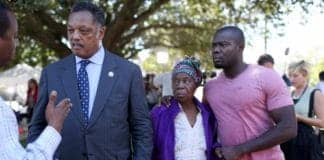Tags WHO
Tag: WHO
Viet Nam vs. COVID-19: How one small nation defeated a global...
Viet Nam and the Vietnamese people have confronted the COVID-19 coronavirus pandemic, and their quick and united national response has produced remarkable results and earned the recognition of top public health experts and organizations around the world.
Ebola, the African Union and bioeconomic warfare
As the Ebola outbreak rages and there are projections of more than 1.4 million persons infected in the next few months, the African Union and the regional bloc ECOWAS have taken a back seat as the international media uses this virus to stigmatize Africa and Africans. Pious statements have been made by the World Health Organization (WHO) as the World Bank warns that Ebola could have “catastrophic” economic costs on the region of Western Africa.
United States Ebola death raises questions about quality of care
There was a sense of shock and disbelief when news was released about the death of Thomas Eric Duncan on Oct. 8 at the Texas Health Presbyterian Hospital in Dallas. The Liberian-born 42-year-old was the first reported case of the Ebola Virus Disease (EVD) which emerged in the U.S. and resulted in death. Reports during the week of Oct. 6 mentioned that Duncan’s medical condition was worsening and that he was “fighting for his life.”
UN capitalizing on cholera, playing both arsonist and fireman
“Haiti may have many problems but until 2010 cholera was not one of them. In fact, the country had no known history of the disease at all,” the Al Jazeera host explains. In October 2010, the first of now 8,000 Haitians died of cholera introduced to Haiti by U.N. peacekeeping troops from Nepal and the U.N.’s negligence in allowing their untreated waste to poison a major river.
Chernobyl: Consequences of the catastrophe 25 years later
Nuclear fallout knows no state or national boundaries and will contribute to increase in illnesses, decrease in intelligence and in instability throughout the world. No country can maintain itself if its citizens are economically, intellectually, politically and socially impoverished. Given the continuing and known problems caused by the Chernobyl catastrophe, we must ask ourselves: Before we commit ourselves to economic and technological support of nuclear energy, who, what and where are we willing to sacrifice and for how long?







